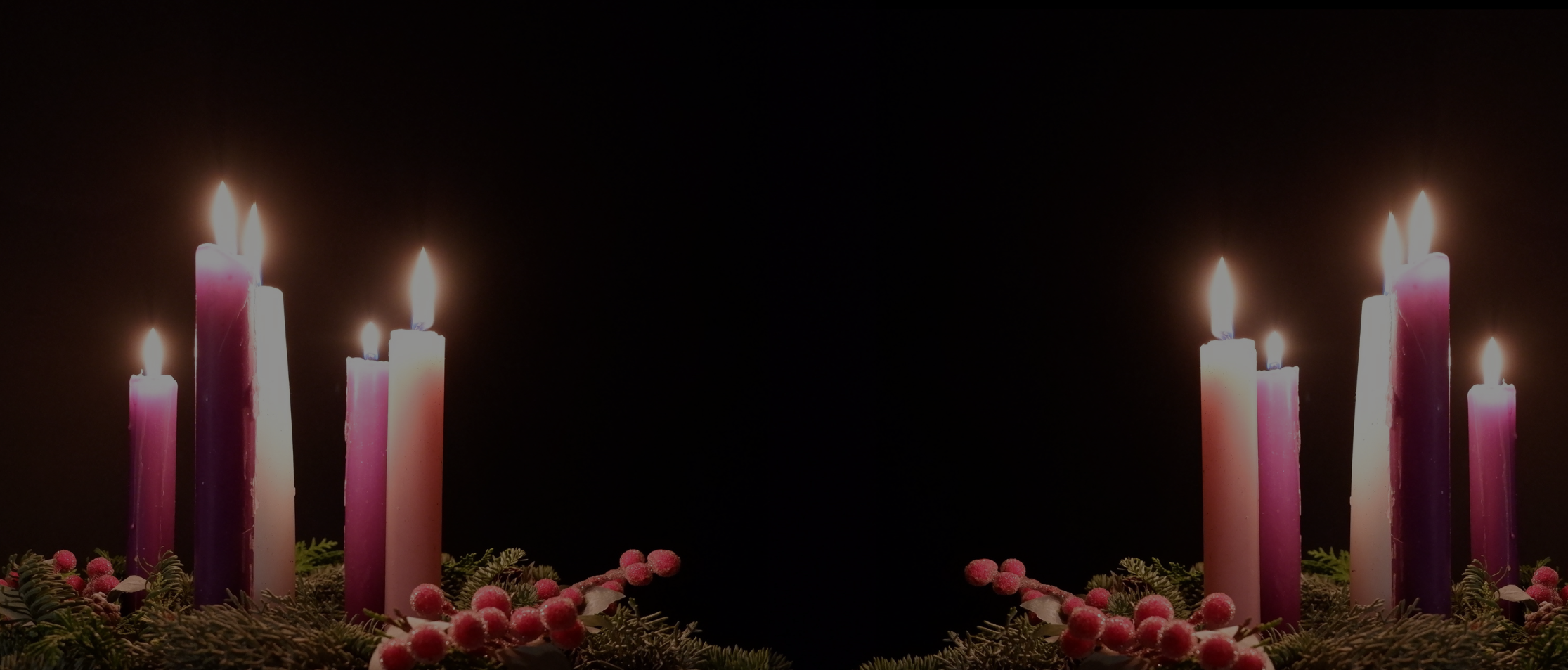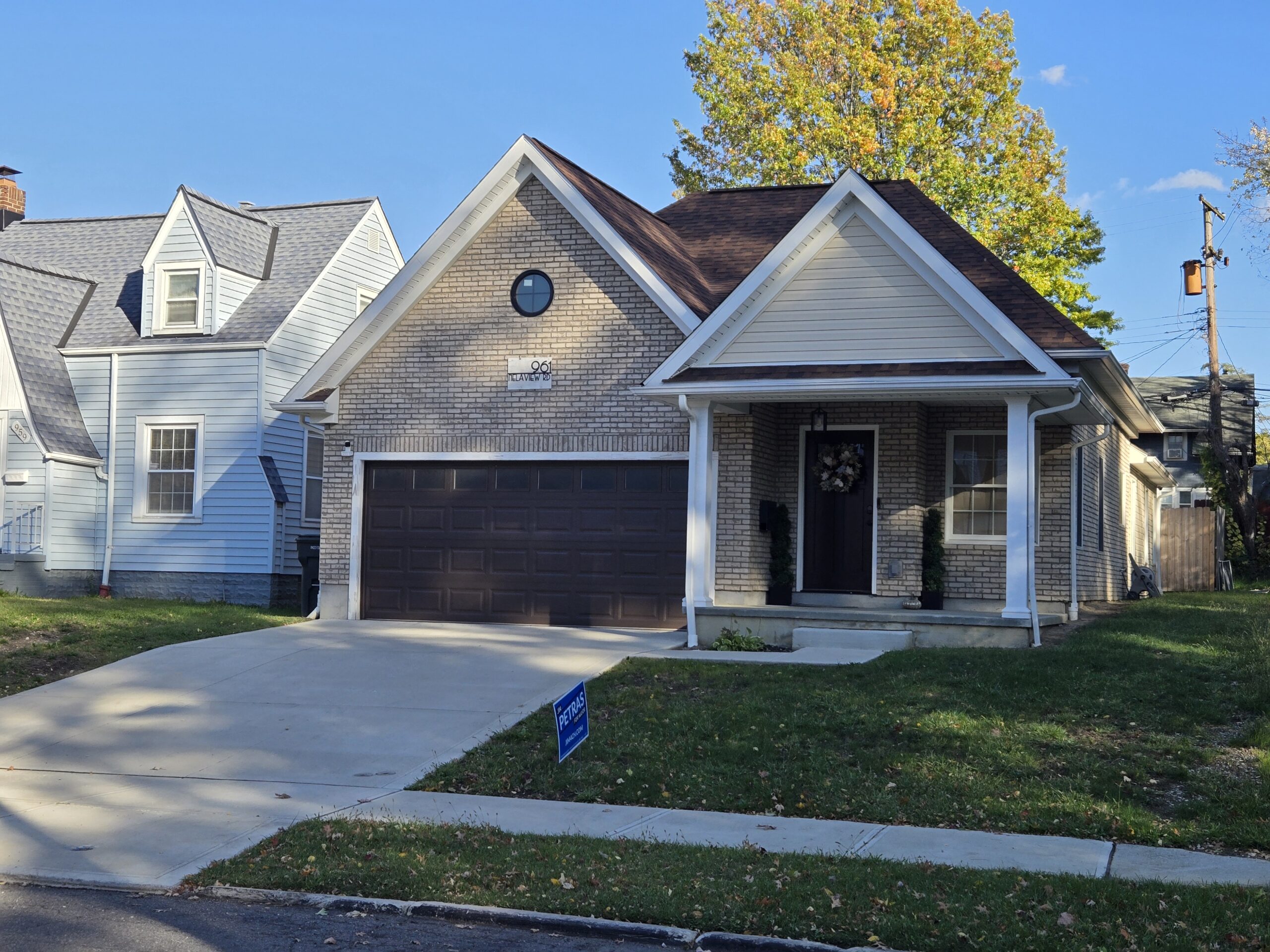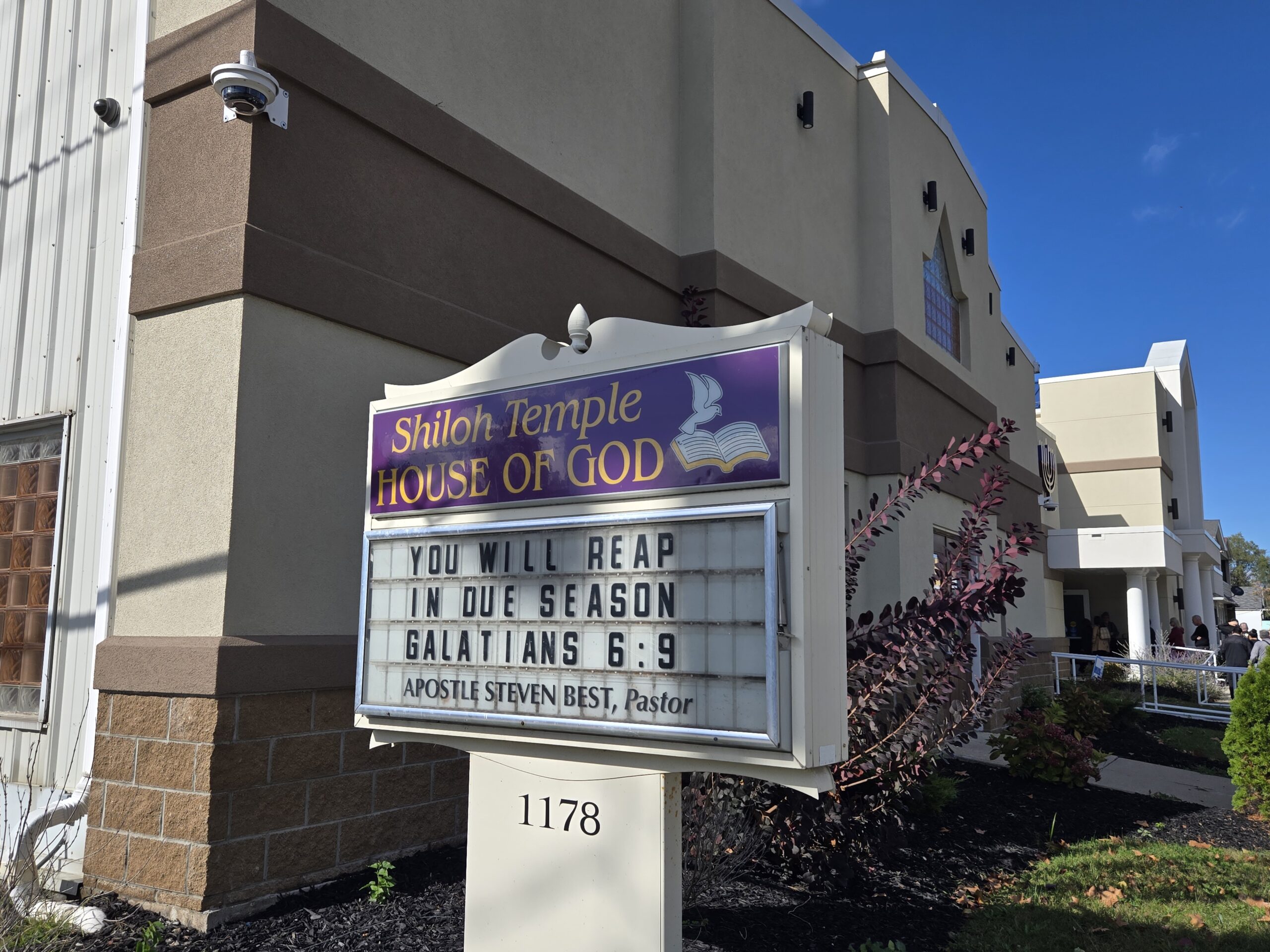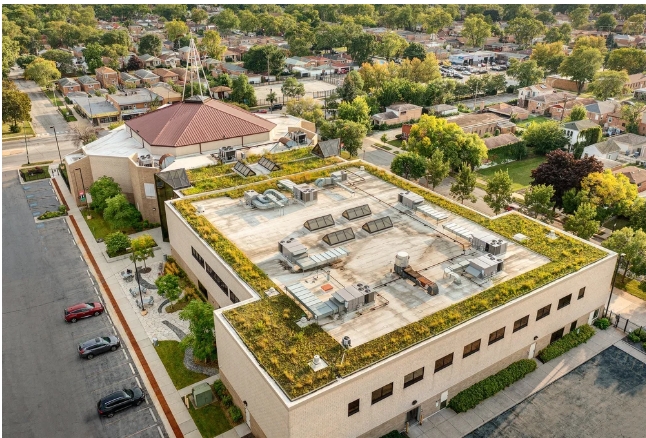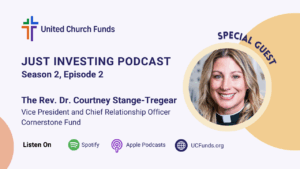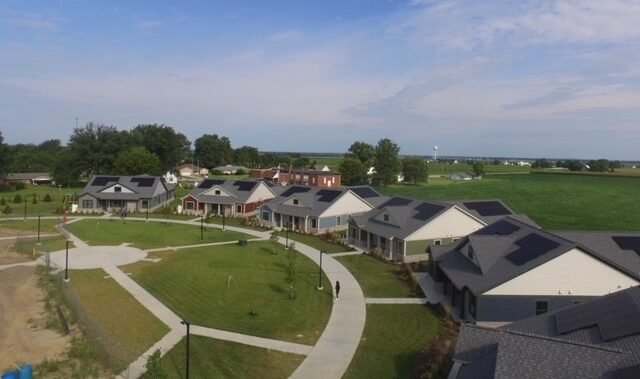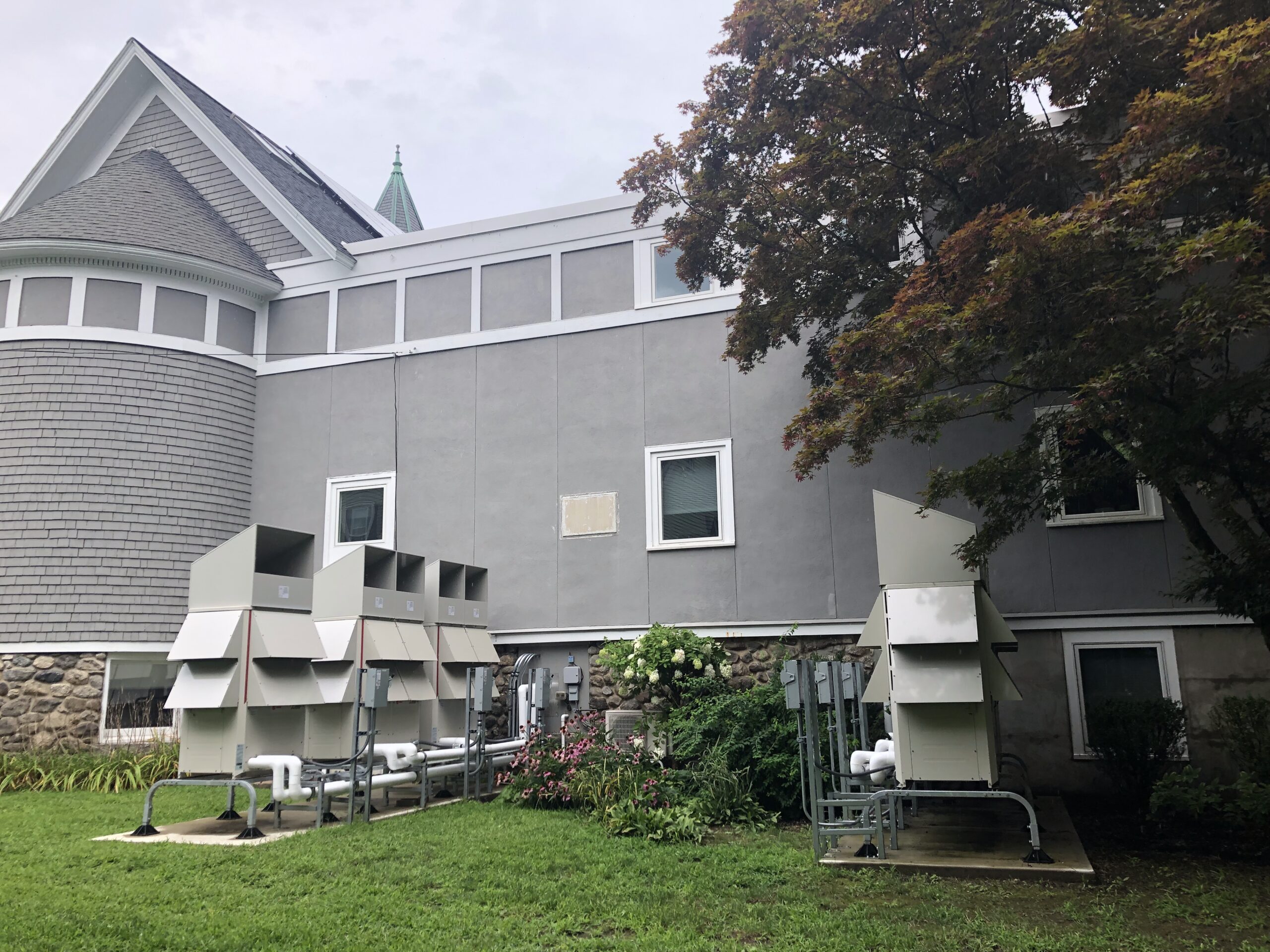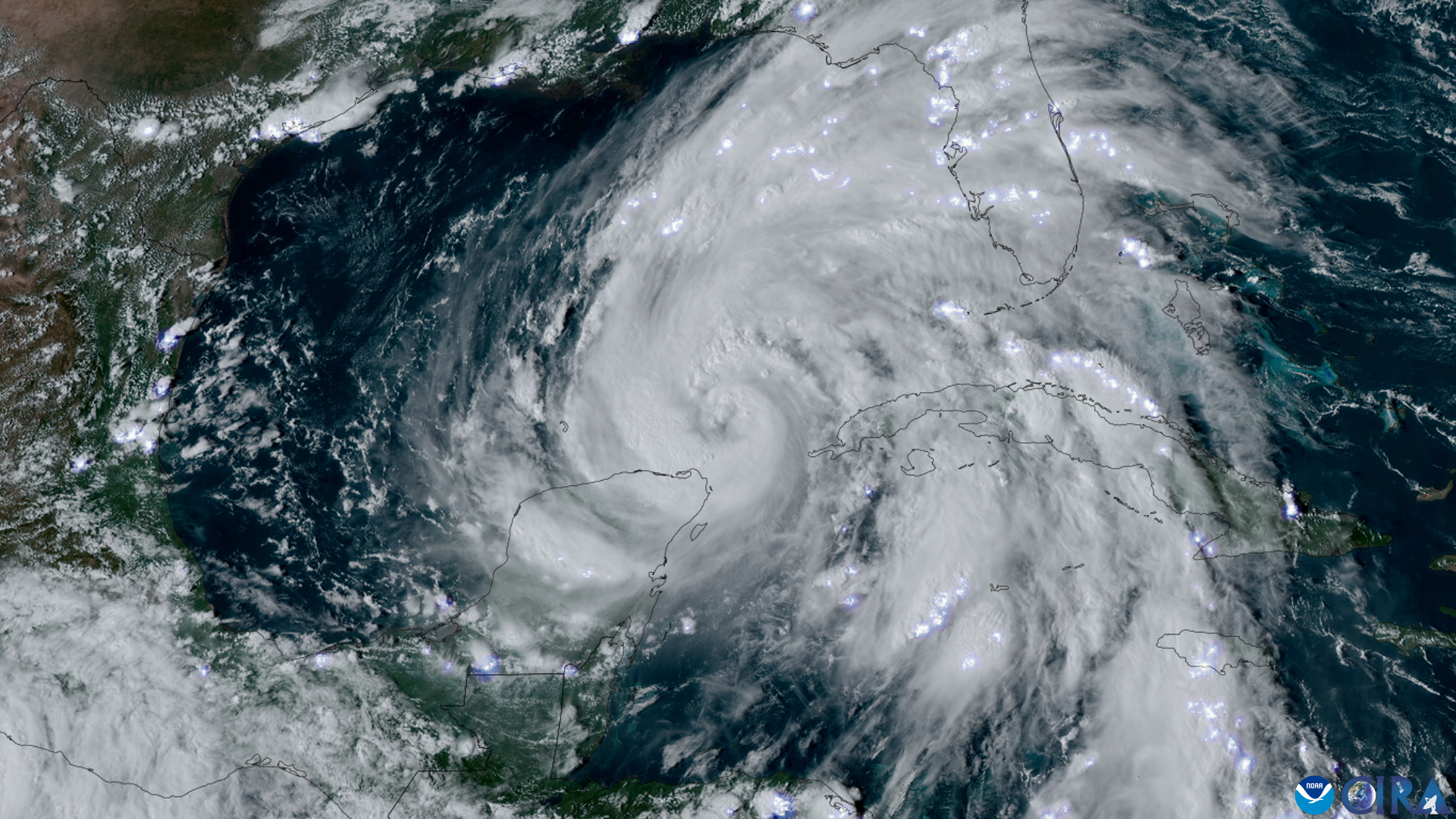Happy Holidays and Thank You!
From Maria Coyne, president and CEO of the Cornerstone Fund:
Dear friends,
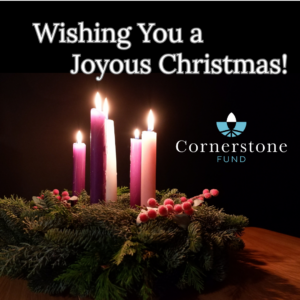 Thank you for another incredible year of helping create change in communities across the country! As a Cornerstone Fund investor, it is important for you to know that your participation directly supports loans to congregations and faith-based nonprofits doing spirit-filled and life-saving work. Your investment was a beacon of hope and inspiration throughout 2025 as the Cornerstone Fund continued to serve as a catalyst for ministries to thrive.
Thank you for another incredible year of helping create change in communities across the country! As a Cornerstone Fund investor, it is important for you to know that your participation directly supports loans to congregations and faith-based nonprofits doing spirit-filled and life-saving work. Your investment was a beacon of hope and inspiration throughout 2025 as the Cornerstone Fund continued to serve as a catalyst for ministries to thrive.
Your investments allowed us to help finance church and non-profit projects ranging from installing rooftop solar, to making sanctuaries more accessible to building more affordable housing, and everything in between. For example, our Disaster Care Program helped Pass-A-Grille Beach Community Church rebuild in a more affordable and sustainable way after Hurricane Helene severely damaged their buildings in 2024.
This is just one example of the Cornerstone Fund Difference – our model of investing in and building community. We have several other examples on our website, and we also share them regularly on social media. We do this because it is important for you to know just how valuable and impactful you are. When you invest with Cornerstone Fund, you are investing in church vitality, anti-poverty initiatives, creation care, and so much more. Thanks to your support:
- Our investments increased by more than $8 million this year, making our total portfolio more than $126.4 million!
- Our loan portfolio grew by approximately $10.7 million this year, totaling more than $142 million!
 You have made a world of difference! And our work together is not done! Here is a sneak peek on something big coming in 2026:
You have made a world of difference! And our work together is not done! Here is a sneak peek on something big coming in 2026:
“Walking the Journey With You” is the new documentary about our partnership with Trinity Church – Chicago to build Imani Village. Learn more and see the trailer on our website.
Thank you for being a trusted partner. We value your commitment to this transformative work. You are truly a light in these times, and we hope your holiday season shines just as brightly.
We couldn’t do what we do without you!
Wishing you all the best for 2026,
Maria Coyne
President & CEO of the Cornerstone Fund
Cornerstone Fund Announces New Chief Financial Officer Tami Marinella
FOR IMMEDIATE RELEASE
DATE: December 15, 2025
CONTACT:
Heather Moyer, Cornerstone Fund
443-418-4653; hmoyer@cornerstonefund.org
Cornerstone Fund Announces New Chief Financial Officer Tami Marinella
The Cornerstone Fund is thrilled to announce the hiring of Tami Marinella as its new Vice President and Chief Financial Officer. Marinella comes to the Cornerstone Fund after serving as the CFO of the United Church of Christ.

“The Cornerstone Fund lives its mission, vision, and purpose, and I look forward to ensuring its financial information is accurate, timely, and useful so that we can continue serving our investors by growing their investments and using those investments to positively impact communities across the US,” said Marinella.
Cornerstone staff are excited to have Marinella’s extensive financial experience.
“We’re thrilled to have someone with such financial acumen join our team,” said Cornerstone Fund President and CEO Maria Coyne. “Tami will be a great addition to our leadership team and an asset that will benefit our clients and partners.”
Prior to joining the UCC National Setting, Marinella served as the CFO of Cuyahoga Metropolitan Housing Authority for seven years. CMHA is the oldest and seventh largest public housing authority in the Country. Marinella also served in financial roles at the Cleveland Department of Public Health, the Cleveland Department of Public Utilities, and Northcoast Behavioral Healthcare. She looks forward to supporting the Cornerstone Fund’s vision.
“Saving and investing, we are taught, is a way to secure your future -- but the Cornerstone Fund offers so much more,” said Marinella. “The Cornerstone Fund is an opportunity to invest in community and in our neighbors. This is the most fundamental concept of all humanity, yet the one most overlooked in financial circles.”
Marinella begins her role January 1, 2026.
###
About the Cornerstone Fund
Founded in 1993, the United Church of Christ Cornerstone Fund’s mission is joining together in faith to invest in and build community. The Cornerstone Fund is a non-profit financial institution that offers investments for individuals, churches, and faith-based non-profit organizations. The Cornerstone Fund then loans those funds directly to other churches and faith-based non-profit organizations for projects that create change in their communities.
Start Right Community Development Corporation
Building Homes for Neighbors in Need
Start Right Community Development Corporation is an off-shoot of the Start Right Church in the Caledonia neighborhood of Cleveland Heights, Ohio. The organization assists the neighborhood by addressing hunger and housing. Its Good Neighbor housing rehab program has renovated 11 homes to date, with 7 properties currently under renovation. The organization is continuing with its Caledonia Homes program, which builds new homes as in-fill projects in the long-neglected neighborhood.
NEED
Start Right CDC plans to build more home in the neighborhood, but their latest home build ran into an issue when federal funds were redirected to its Good Neighbor program instead.
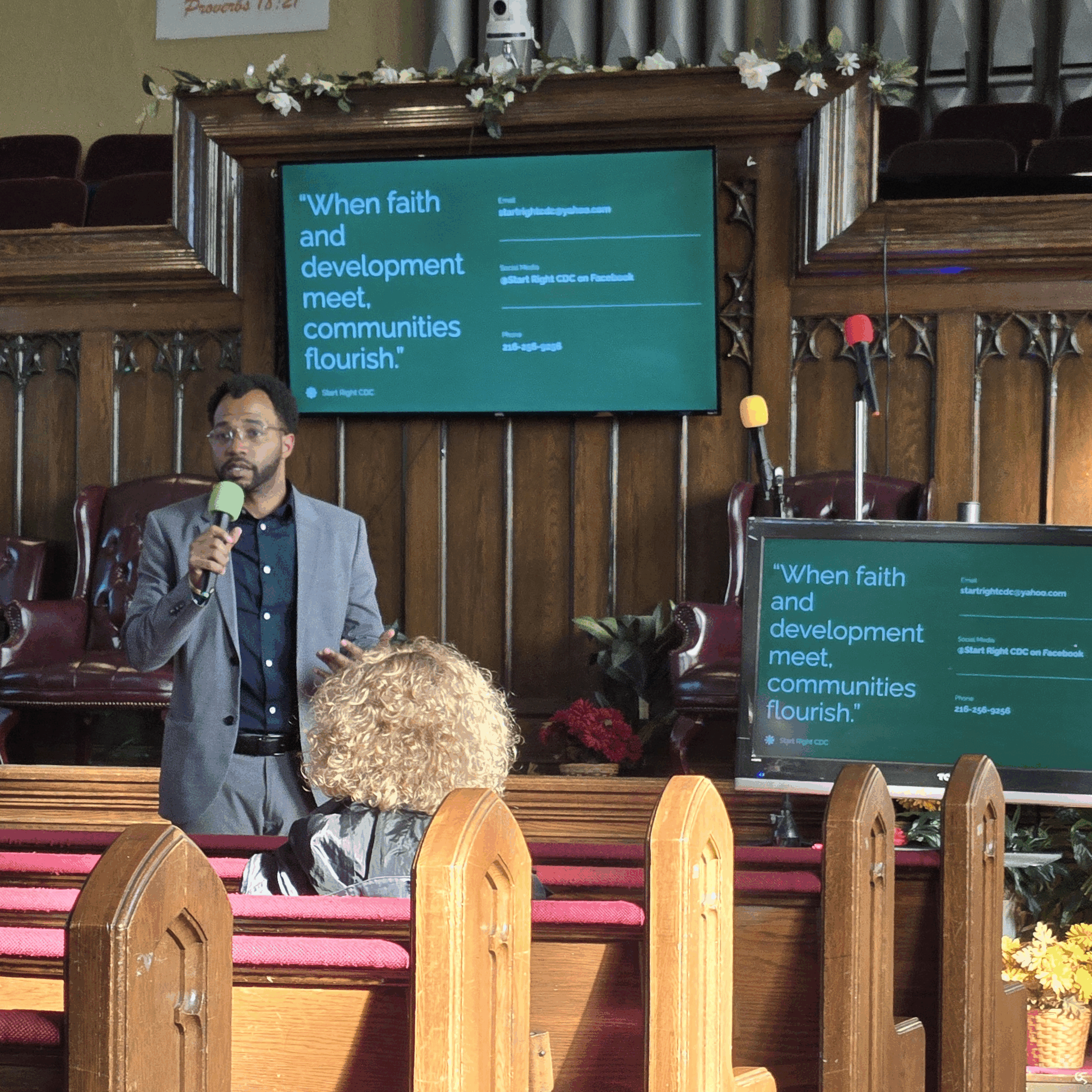
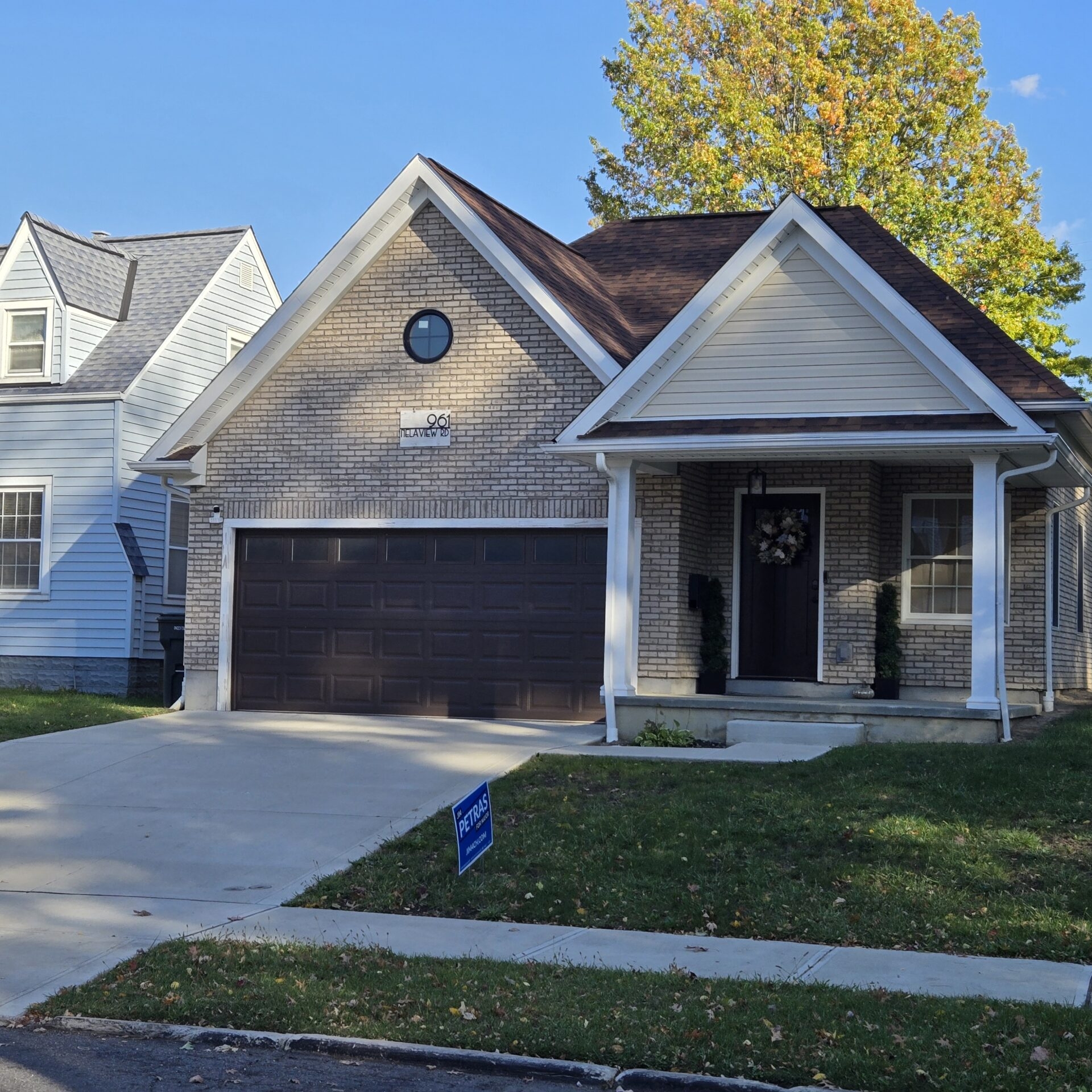
CALLING
Start Right CDC is building new homes to create affordable housing for current residents of the Caledonia neighborhood.
God Math
A line of credit with the Cornerstone Fund is allowing Start Right CDC to move ahead with its housing construction. The organization aims to build more than 20 additional homes in Caledonia in the coming years.
Shiloh Temple House of God
Expanding Worship and Community Outreach
Shiloh Temple House of God in Cleveland, Ohio is a church offering numerous services for its congregation and the surrounding community, including after-school programs, summer youth programs, food distribution, and healthcare guidance in partnership with nearby hospitals. Some 40% of neighborhood residents live below the line.
NEED
Shiloh’s congregation was outgrowing its building both in membership numbers and in community services. They needed space for a growing congregation to worship and help the neighborhood.
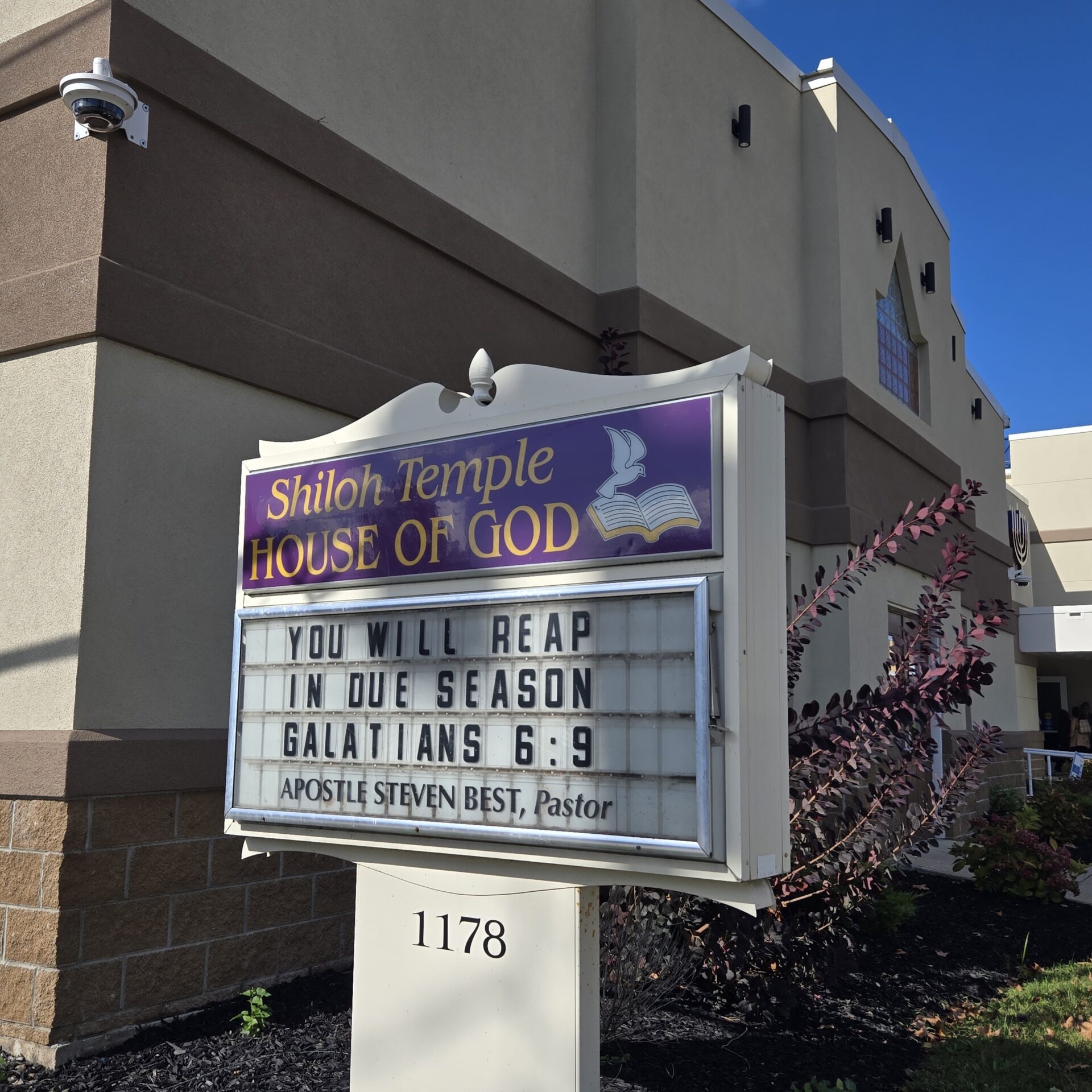
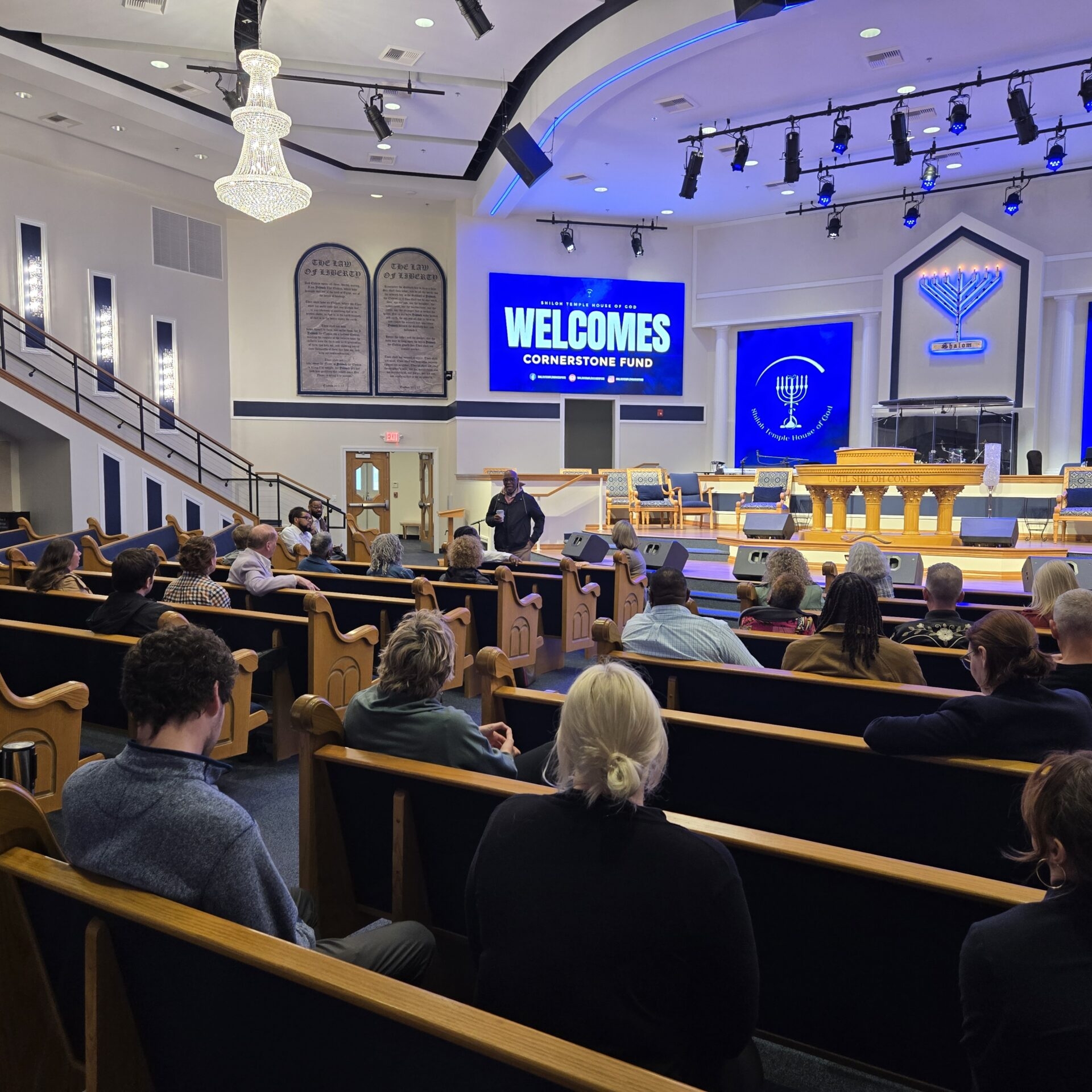
CALLING
The congregation’s dream was to build a bigger facility next to the current building to house a much larger sanctuary and allow them to continue offering critical services to the neighborhood.
God Math
Thanks to Cornerstone Fund investors, a loan of $5,215,000 helped Shiloh Temple House of God build the new facility – which boasts a large sanctuary, library, and offices. The old church building was transformed into a banquet hall and rooms for community and church use.
“(The Cornerstone Fund) understood where we were coming from….It was absolutely wonderful working with them and I would recommend them to anybody.”
— Apostle Steven L. Best, Sr., pastor of Shiloh Temple House of God.
Trinity Chicago's Imani Village Highlighted in Crain's Business
Reposted from Crain's Chicago Business
Imani Village Lays Down a Model for Transforming Far South Side
by Judith Crown, October 14, 2025
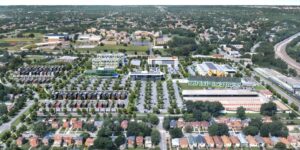
Over the summer, Chicago seniors began moving into a $36 million, 70-unit building with modern appliances and community spaces just steps from a new Metra station scheduled to open in 2027. It’s the first project at Imani Village at 95th Street and Cottage Grove Avenue, a mixed-use development initiated by Trinity United Church of Christ.
Trinity says Imani, which means faith in Swahili, is envisioned as a beacon of hope in a neighborhood accustomed to poverty and disinvestment. It’s a “blueprint for transforming the face and future of Chicago’s Far South Side,” according to the Pritzker Traubert Foundation. The project is a finalist for the foundation’s 2025 Chicago Prize , which supports real estate development on the city’s South and West sides.
“We're building a model community, and we're anchoring the 95th Street Corridor Plan,” says Patricia Eggleston, executive director of Imani Village. The project is inspired by principles of economic development, health equity, environmental justice and reversing the negative impact of mass incarceration, she says.
The Chicago Prize comes with a $10 million grant over three years, which could provide leverage for the additional funding needed for ambitious plans that include a second building for seniors, a hotel, an athletic and wellness center, and a food hub. A social enterprise, Imani Village has plans to convert a former steel distribution facility into a manufacturer of single-family modular homes.
Earlier this year Advocate Health Care announced plans to add an immediate care center to its outpatient clinic at Imani, a $10 million investment. The expansion will add 4,600 square feet to the clinic, which opened in late 2018, and include equipment to support triage and treatment, cardiac and vascular diagnostics, imaging services and virtually assisted care. It is scheduled to open by the end of the year.
Trinity started acquiring land at the site in 2009, spending $7.65 million over five years to purchase 27 acres, with another 8 acres pending, Eggleston says. A $6.7 million loan from the Cornerstone Fund of the United Church of Christ was used to build the Advocate clinic.
A charter school on the site was converted to community and office space for Trinity’s nonprofit arm, The Endeleo Institute. The senior apartments, built with co-developer SPM Properties, required a capital stack that included tax credits and participation by the city of Chicago, the state of Illinois and the U.S. Department of Housing & Urban Development. A second group of 62 apartments also is planned.
An ambitious part of the plan is conversion of the former Carpenter Technology steel distribution facility to build modular homes, called Imani Works, in partnership with Chicago-based builder Inherent L3C, which has been constructing affordable single-family homes on the West Side since 2022. Inherent will manufacture the first batch of homes at its West Side facility, then “gradually train us and our partners,” Eggleston says.
Imani’s vision and its standing as a finalist for the Chicago Prize open a major opportunity, says Juan Sebastian Arias, executive director of the nonprofit Elevated Chicago, one of the partner agencies on the plan to revive the 95th Street Corridor. “With all the infrastructure investment in the works, Imani will continue as a major hub of activity and it can be a generator of equitable community wealth building,” he says.
Cornerstone Fund Guests on United Church Funds Podcast
The United Church Funds "Just Investing" podcast had Cornerstone Fund VP & Chief Relationship Officer Rev. Dr. Courtney Stange-Tregear as a guest this week. They talked about what we mean by "God Math," and so much more. Listen by clicking on the image, or on the podcast services listed below.
Listen and Subscribe On:
Hoyleton Youth and Family Services
Helping Kids In Need
Hoyleton Youth and Family Services in Fairview Heights, Illinois, is a residential treatment program for children and adolescents as well as a transitional living for older adolescents with developmental disabilities who may also have severe emotional and behavioral problems. The organization is the single largest residential care provider in the state for children diagnosed with intellectual disabilities and mental illness. Hoyleton can attest that given the right care, even children in worst case scenarios can experience remarkable growth and recovery.
NEED
Hoyleton’s five residential cottages were grossly outdated. The oldest cottage was built in 1915 and the newest in 1995. While the cottages have been maintained and updated (roofs, flooring, etc.) they were largely in their original form—outdated and not built for their current use.
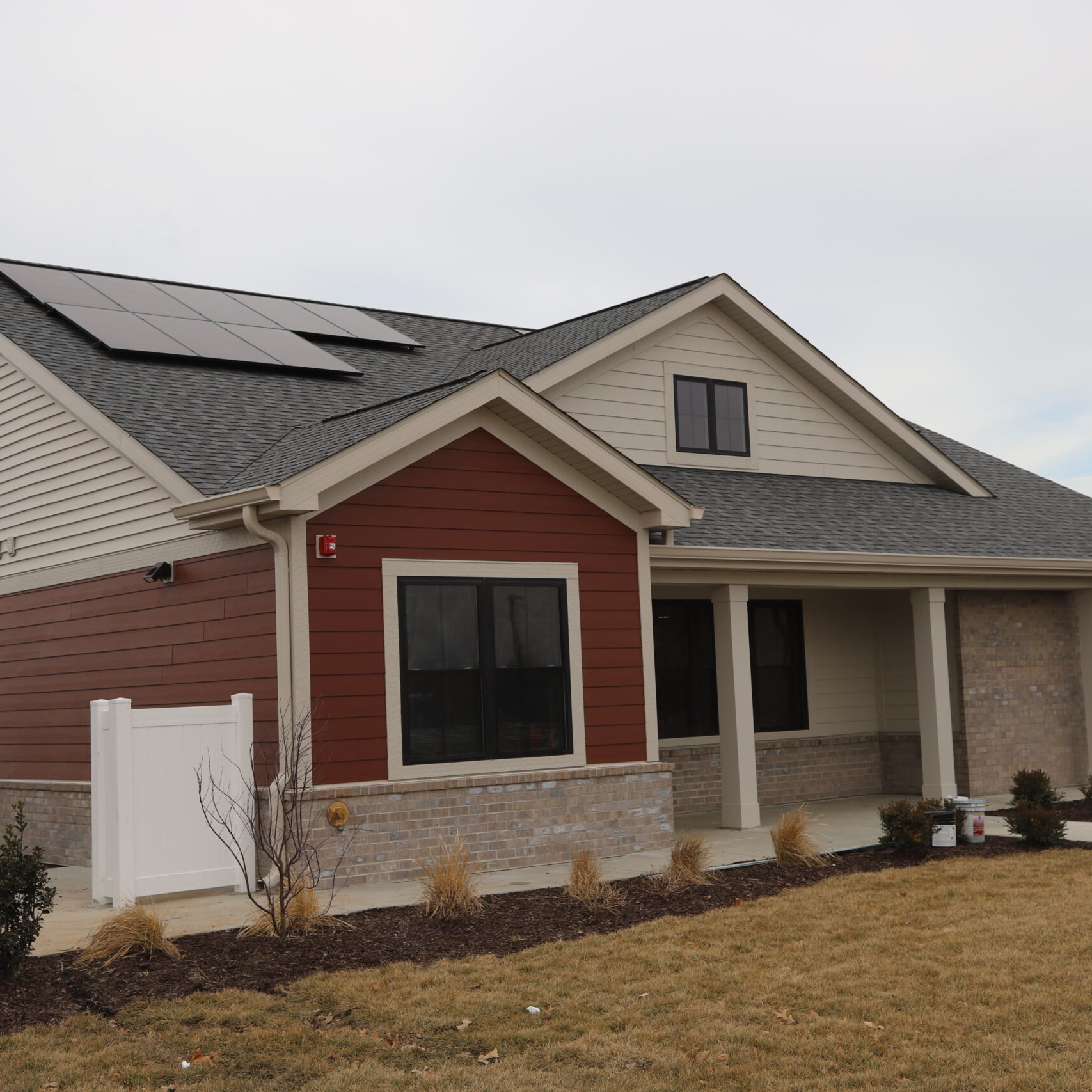
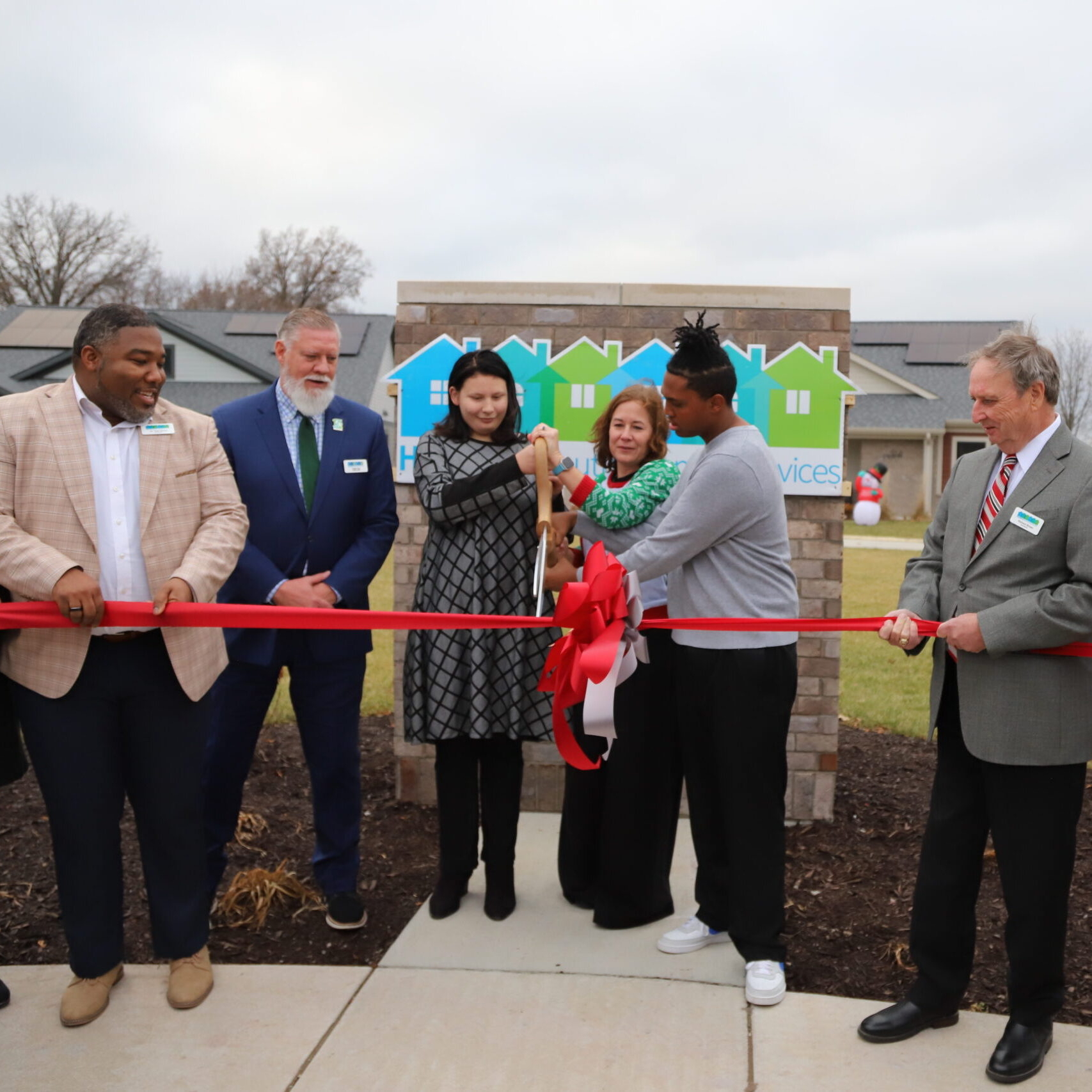
CALLING
Hoyleton’s facilities were unable to accommodate Illinois Department of Children and Family Service’s need for more therapeutic beds for this population of youth. The organization saw the need for updated and safe facilities for their patients and dedicated themselves to building six new cottages.
God Math
A Cornerstone Fund loan of $5.5 million helped Hoyleton meet the need and build the new cottages. These new buildings that are suitably designed for children and adolescents will lead to a shorter stay in therapeutic care. With the new facilities, Hoyleton expects to reduce the average stay from 17.5 to 12 months or less, and the anticipated result is that more than 70 children will be served on an annual basis.
“Cornerstone’s guidance and assistance were instrumental in transforming a long-held dream into reality. I can’t envision a more ideal partner to have worked with.”
— Chris L. Cox, President and CEO of Hoyleton Family and Youth Services.
West Concord Union Church
Creation Care in Action
West Concord Union Church is a historic United Church of Christ congregation in Concord, Massachusetts, that strongly supports a range of social justice causes. To demonstrate their commitment to Creation Care, they knew it was time to invest more in “greening” the church.
NEED
After installing solar panels on their roof several years ago, WCUC wanted to update the church’s oil-fueled HVAC system (pictured on the right). It was old, inefficient, and expensive. The system generated more than 140,000 pounds of greenhouse gases annually.

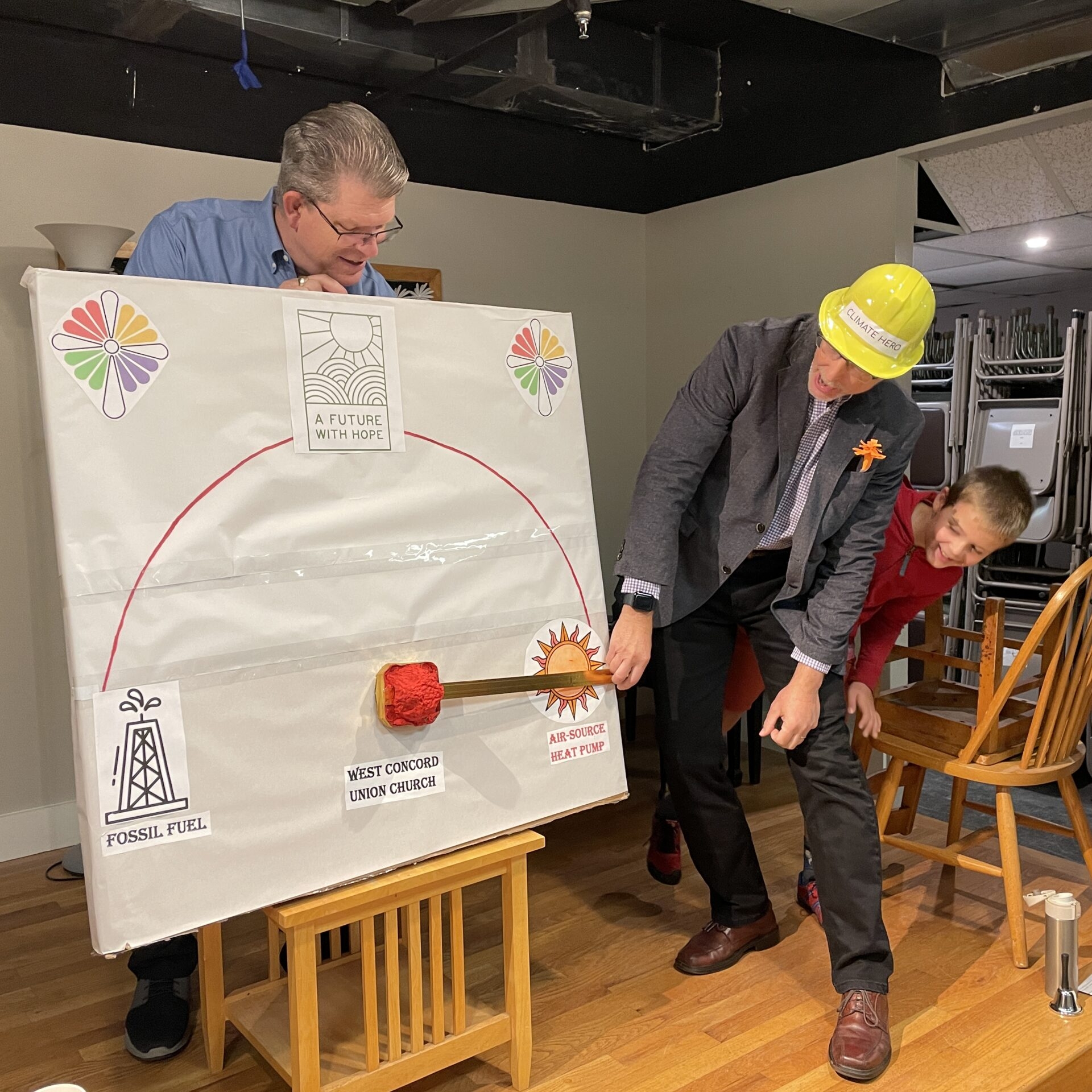
CALLING
West Concord Union Church was called to increase their commitment to Creation Care by installing a more efficient and less expensive heat pump HVAC system. With a total project cost of $1.3 million for the HVAC construction, West Concord Union Church was prompted to look outside of the congregation for the necessary financial solutions.
God Math
The Cornerstone Fund’s Creation Care loan, which came with a reduced interest, was put to work to finance the new HVAC project’s $1.3 million price tag.
Thanks to an effective capital campaign, revenue from various church tenants, notable property assets, and the Cornerstone Fund loan, the congregation updated its HVAC system. The new system is expected to save the congregation $30,000 to $40,000 annually. And thanks to this new HVAC system, the church is now carbon neutral.
“Our community believes that God calls us to care for the earth. Transforming our energy use is an expression of our beliefs and aligns of our practices with our faith.”
– Rev. Hannah C. Brown, pastor of WCUC.
Cornerstone Fund Disaster Care Program Helps Florida Church Rebuild After Hurricane Helene
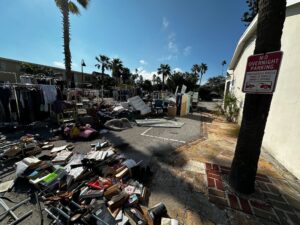
On September 26, 2024, Hurricane Helene came ashore as a Category 4 storm in the Big Bend area of Florida. A year later, the congregation of Pass-A-Grille Beach Community Church in Pass-A-Grille, Florida is remembering the disaster and its effects on the whole area.
"Our church is on a barrier island—one side is the Gulf of Mexico and the other side is Tampa Bay," said the Rev. Dr. Angela Wells-Bean, senior pastor of the church. "The island is maybe two miles long and very narrow. We're very vulnerable.
"Helene's storm surge flooded our whole campus with almost three feet of water."
The church's sanctuary, narthex, commons, offices, nursery, thrift store, and first floor education wing were devastated. The sanctuary's damage also prohibited any services.
"Where were we going to worship? Our pews had been floating in three feet of water," said Rev. Wells-Bean. Thankfully they were able to hold services at Pilgrim United Church of Christ in nearby St. Petersburg.
The community pulled together quickly for the recovery and rebuilding. Thanks to a United Church of Christ Ministry Capacity Rebuilding Grant, PAGCBC was able to restore its thrift store.
On top of that, a Disaster Care Program loan from the Cornerstone Fund continues to assist in the rebuilding and disaster mitigation projects. The congregation's weekly worship services returned to the repaired sanctuary in late January of this year. The rest of the building’s repairs continue – from drywall replacement to new electrical wiring and more.
"It's been amazing to work with the Cornerstone Fund," said Rev. Wells-Bean. "We're grateful for how supportive and understanding you are."
The Cornerstone Fund's Disaster Care Investment and Recovery Program launched in late 2024 in response to the increasing number of natural disasters each year. Cornerstone Fund leadership collaborated with the United Church of Christ Disaster Ministries and the United Church of Christ Insurance Board in planning the program, which provides loans at a lower interest rate than would otherwise be available to churches that have experienced destruction.
The Southern California – Nevada Conference of the United Church of Christ saw the critical need for this program and made the first generous investment. The conference leaders know that these low-rate loans are made possible because the individuals and institutions that invest in Disaster Care willingly accept lower investment rates.
To recover after disasters, these loans help United Church of Christ congregations undertake projects such as:
- Repairing or replacing roofs
- Repairing or rebuilding worship and fellowship spaces
- Installing facilities to support incoming recovery volunteers
- Improving facilities to mitigate future disaster impacts
Pass-A-Grille Community Beach Church's Disaster Care loan also requires disaster mitigation projects, so the church purchased door barriers to prevent water intrusion in the future.
As the rebuilding continues for the church and the surrounding community, the congregation will hold a First Anniversary Service of Healing and Remembrance on September 28 with Church of the Isles UCC, which was also damaged by Hurricane Helene.
"That service is on the beach to recognize that this is why we're all here," said Rev. Wells-Bean. "The beach is the magnet that pulls us all here, but it is also the source of our destruction. How to do we wrestle with that – how do we name our gratitude of the ocean, but at the same time, acknowledge that it's also incredibly powerful and destructive?"
Learn more about the Disaster Care Investment and Loan Program
Cornerstone Fund and Trinity Church New York Announce Ground-Breaking Partnership Offering Millions for Church and Faith-Based Projects
FOR IMMEDIATE RELEASE
DATE: September 8, 2025
CONTACT:
Heather Moyer, Cornerstone Fund
443-418-4653; hmoyer@cornerstonefund.org
Cornerstone Fund and Trinity Church New York Announce Ground-Breaking Partnership Offering Millions for Church and Faith-Based Projects
This week the Cornerstone Fund and Trinity Church New York announced a partnership that will create more than $23 million in low-cost financing for churches and other faith-based organizations throughout the United States creating change in their communities.
Named Good Soil Fund, based on the Biblical Parable of the Sower, this partnership provides a $2.3 million investment from Trinity Church that the Cornerstone Fund will use, along with other sources of capital, to multiply the investment ten-fold, creating more than $23 million in impacts via churches and other faith-based organizations.
“But the seed falling on good soil refers to someone who hears the word and understands it. This is the one who produces a crop, yielding a hundred, sixty or thirty times what was sown.” (Matt 13:23)
“The Cornerstone Fund is thrilled to partner with such a missionally aligned organization as Trinity Church New York on this very important work of utilizing church property to create sustainable community impact,” said Maria Coyne, President and CEO of the Cornerstone Fund.
“The Cornerstone Fund has long expertise in lending to churches and other faith-based organizations for projects that do everything from simply enhancing the spiritual home and allowing the church to better serve its community, to ‘creation care’ projects that assist in lowering the property's carbon footprint, to projects which provide food or shelter all by providing creative and often gap-filling borrowing solutions.”
Loans include lines of credit, bridge financing, pre-development and construction financing, and permanent financing for mission real estate development projects.
To qualify for Good Soil Fund financing, projects should involve a real estate development that generates social impact while building financial capacity to support ministry. Developments may include difficult to finance projects such as low-density housing, transitional housing for vulnerable populations such as refugees, immigrants, returning citizens, and LGBTQIA+ youth, and projects supporting community education, social services, health and economic development, among many others.
“This partnership creates a critical source of flexible capital to help churches advance their real estate projects from pre-development through construction and operation, ” said Rev. James Clark III, managing director of Mission Real Estate Development at Trinity Church New York.
Churches and other faith-based organizations interested in more information about these loans or finding out about investing in the Cornerstone Fund should contact info@cornerstonefund.org or 888-822-3863 or visit our website at cornerstonefund.org
About the Cornerstone Fund
Founded in 1993, the United Church of Christ Cornerstone Fund’s mission is joining together in faith to invest in and build community. The Cornerstone Fund is a non-profit financial institution that offers investments for individuals, churches, and faith-based non-profit organizations. The Cornerstone Fund then loans those funds directly to other churches and faith-based non-profit organizations for projects that create change in their communities.
About Trinity Church
Trinity Church is an Episcopal parish in New York City founded in 1697. We work for justice, serve our neighbors, and bring people together to experience God’s love in community. Trinity’s outreach in the city includes 20 weekly worship services, food assistance seven days a week for people in need, support for asylum seekers, housing for the elderly and people living with disabilities, youth programs, and a wide array of free music and educational events throughout the year. The church also supports communities and ministries serving the world in Africa, Asia, and across the Americas.
